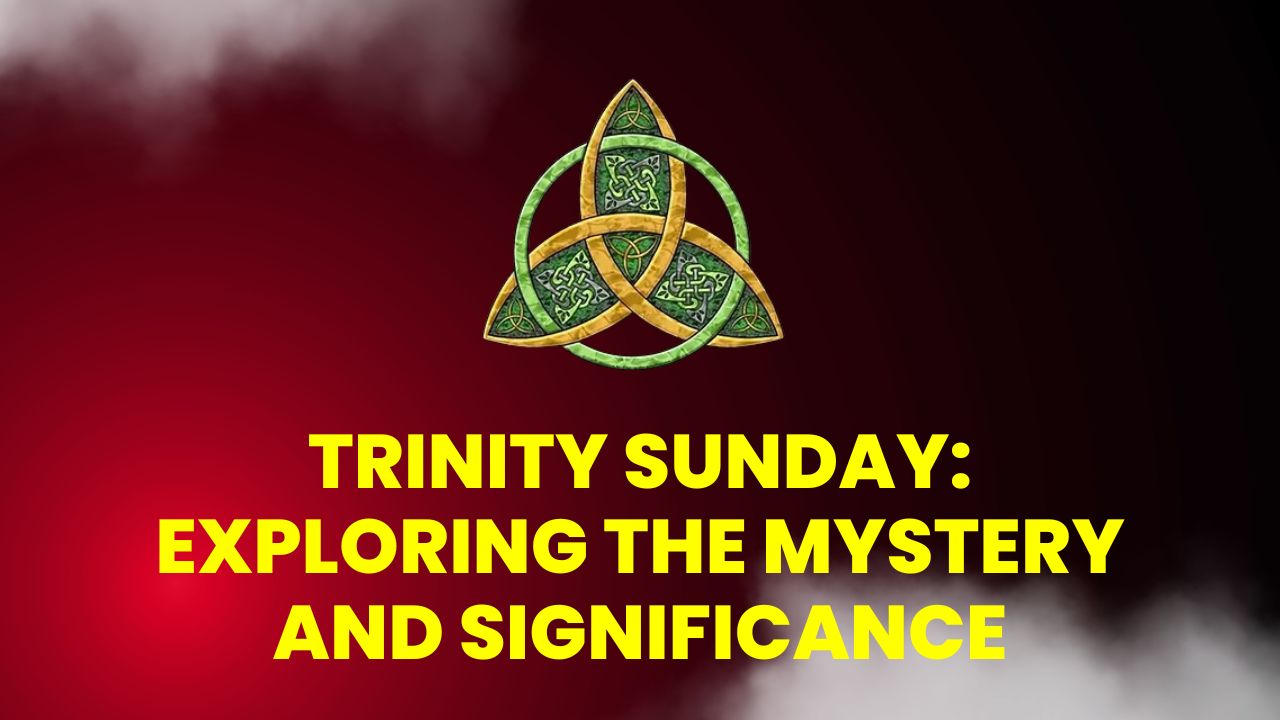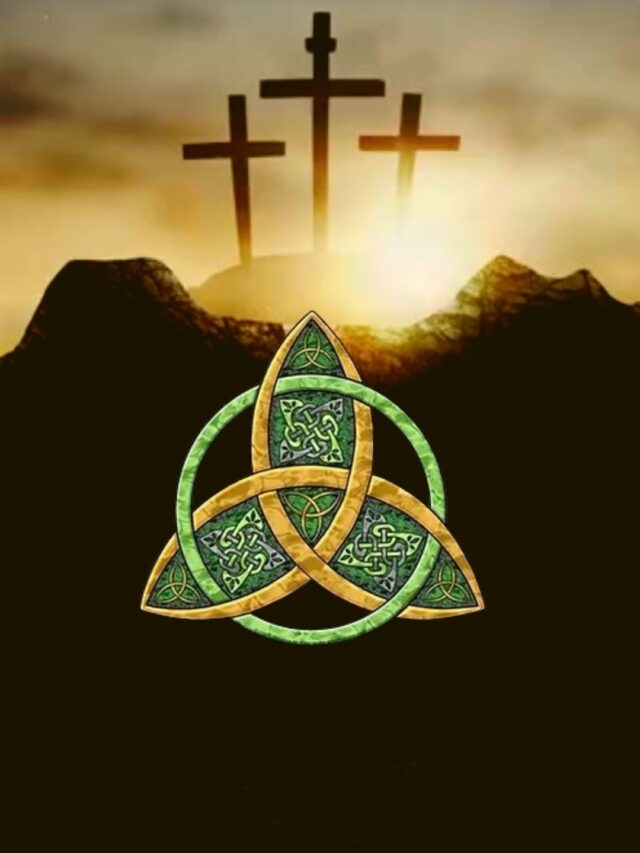Introduction
Welcome to our in-depth exploration of Trinity Sunday! This important Christian observance falls on the first Sunday after Pentecost and celebrates the concept of the Holy Trinity—the Father, Son, and Holy Spirit. In this article, we will delve into the significance, history, and traditions associated with Trinity Sunday. Join us on this enlightening journey!
Trinity Sunday – Unveiling the Mystery
Trinity Sunday is a day of profound theological reflection and contemplation. It invites believers to ponder the mystery of the Triune God—the three distinct persons in one divine being. This observance provides an opportunity to explore the nature of God and deepen our understanding of the Christian faith. Let’s dive deeper into the various aspects of Trinity Sunday.
The Significance of the Holy Trinity
The concept of the Holy Trinity is a cornerstone of Christian belief. It represents the complex relationship between God the Father, Jesus Christ the Son, and the Holy Spirit. The Trinity is an embodiment of divine unity, love, and eternal existence. Each person of the Trinity plays a unique role in salvation history and the spiritual journey of believers.
The History of Trinity Sunday
The origins of Trinity Sunday can be traced back to the early Christian centuries. While the concept of the Holy Trinity was present in the teachings of Jesus and the writings of the Apostles, it was during the Council of Nicaea in 325 AD that the doctrine of the Trinity was officially established. However, it was not until the ninth century that Trinity Sunday became a specific liturgical observance.
Celebrating Trinity Sunday
On Trinity Sunday, churches worldwide celebrate the divine mystery of the Holy Trinity through special services, hymns, and sermons. It is a day to honor and worship the Father, Son, and Holy Spirit. Some churches may also incorporate baptisms and confirmations into the service, highlighting the significance of the Triune God in these sacraments.
Common Symbols and Imagery
When contemplating the Holy Trinity, various symbols and imagery are often associated with each person of the Trinity. These symbols aid in understanding and visually representing the distinct but unified nature of God. Let’s explore some of the common symbols associated with the Father, Son, and Holy Spirit.
| Person of the Trinity | Symbol |
|---|---|
| God the Father |  |
| Jesus Christ the Son |  |
| Holy Spirit |  |
Frequently Asked Questions (FAQs)
Q1: What is the origin of the term “Trinity”?
The term “Trinity” is derived from the Latin word “trinitas,” meaning “threefold” or “triad.” It was first used by Tertullian, an early Christian theologian, to describe the divine nature of God as Father, Son, and Holy Spirit.
Q2: Is the Trinity concept unique to Christianity?
Yes, the concept of the Holy Trinity is primarily associated with Christianity. While other religions acknowledge monotheistic beliefs, the Christian understanding of the Trinity sets it apart from other faith traditions.
Q3: How can we grasp the concept of the Holy Trinity?
The Trinity is a divine mystery that surpasses human comprehension. It is not meant to be fully grasped by human intellect but rather embraced through faith and spiritual contemplation. Analogies such as the three states of water (solid, liquid, gas) or the sun (light, heat, energy) are sometimes used to illustrate the concept, but they are imperfect representations.
Q4: Are there any controversies or debates regarding the Trinity?
Throughout history, various theological debates have arisen concerning the nature of the Trinity. These debates often revolve around understanding the relationship between the Father, Son, and Holy Spirit. While differences exist among Christian denominations, the core belief in the Triune God remains central.
Q5: What is the significance of the Holy Trinity in everyday Christian life?
The Holy Trinity holds immense significance for believers. It is a reminder of God’s multifaceted nature, His presence in every aspect of life, and the invitation to enter into a relationship with each person of the Trinity. The Trinity serves as a model of unity, love, and cooperation for the Christian community.
Q6: Why is Trinity Sunday celebrated after Pentecost?
Trinity Sunday falls on the first Sunday after Pentecost because Pentecost commemorates the outpouring of the Holy Spirit upon the apostles and the birth of the early Christian Church. Trinity Sunday, therefore, follows as a celebration of the divine nature of God made evident through the Holy Spirit.
Conclusion
Trinity Sunday stands as a remarkable opportunity to explore the mystery and significance of the Holy Trinity. It is a day for believers to engage in deep reflection, worship, and awe-inspiring contemplation of God’s nature as Father, Son, and Holy Spirit. As we celebrate Trinity Sunday, let us embrace the richness of this divine truth and seek to live in harmony with the Triune God.
Remember, Trinity Sunday is not just an observance on the liturgical calendar; it is an invitation to dive into the depths of the divine mystery and experience a profound encounter with God. So, on this Trinity Sunday, take a moment to appreciate the wonders of the Father, Son, and Holy Spirit—the Trinity that guides and nourishes our faith.


It’s actually a nice and helpful piece of info. I am
glad that you just shared this useful info with us.
Please keep us up to date like this. Thanks for sharing.
Woah! I’m really loving the template/theme of this blog.
It’s simple, yet effective. A lot of times it’s hard to get that
“perfect balance” between superb usability and visual appeal.
I must say you’ve done a awesome job with this. Additionally, the blog loads very
quick for me on Chrome. Outstanding Blog!